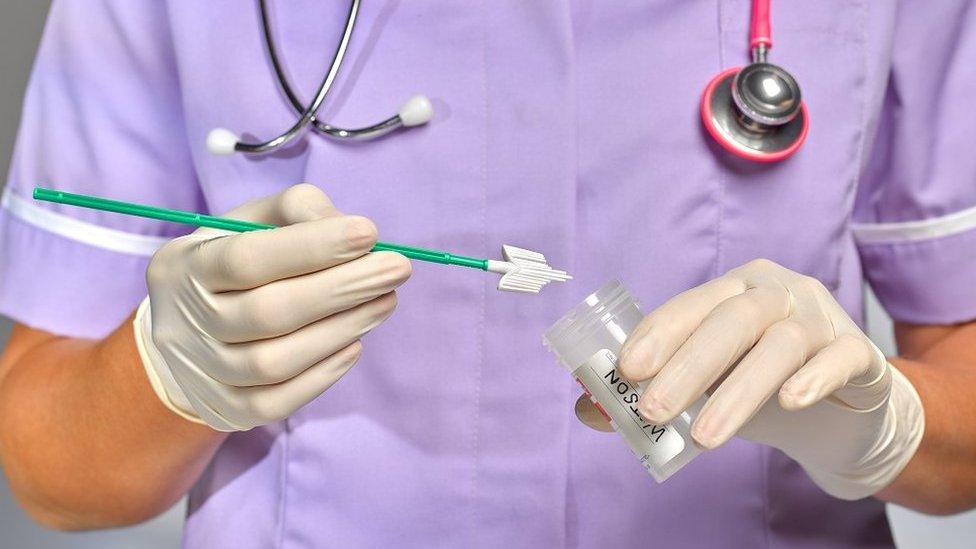Eight women developed cancer after smear test misread, says report

A further 11 women's slides were found to have pre-cancerous changes in the cells when reviewed
- Published
Eight women whose smear tests were misread by screeners went on to develop cancer, a major review into cervical screening at the Southern Health Trust has found.
A further 11 women's slides were found to have pre-cancerous changes in the cells when they were reviewed and had to receive treatment.
All these women had either pre-cancerous changes to their cervix or were diagnosed with another significant gynaecological condition when their smears were reviewed.
The Southern Health Trust has apologised to all those affected.
'An absolute scandal'
Stella McLoughlin from the campaign group Ladies with Letters said what had happened was unforgivable
The review was triggered when the diagnoses of three women were investigated as a Serious Adverse Incident.
Two of the women, Lynsey Courtney and Erin Harbinson, have since died.
More than 17,000 were approached to have their smear tests rechecked.
The examination of cancer screening at the Southern Health Trust over 13 years found that many women were failed after some screeners underperformed and went unchecked by management for years.
Stella McLoughlin from the campaign group Ladies with Letters described what had happened as unforgivable and called for a public inquiry.
"This has been an absolute scandal from start to finish and was allowed to go on for 10 years," she added.
"Smears being misread, people not being held to account, screeners not being managed properly - all of this is affecting real people."

Lynsey Courtney, who died aged 30, had her case reviewed
Cervical screening review
The review of cervical screening in the trust looked at two different groups of women.
The first looked at the cases of 207 women who had previously been diagnosed with cervical cancer.
The eight women who went on to develop cancer had their slides reviewed in this cohort.
The review found that if their tests had been read correctly they could have been diagnosed and treated earlier.
The second group included 17,425 women who were asked to return to have their smears rechecked.
The 11 women who are currently undergoing non-cancerous treatment were part of this group.
The trust said it could not be concluded that the eight women had developed cancer because abnormalities on their smear tests were missed.
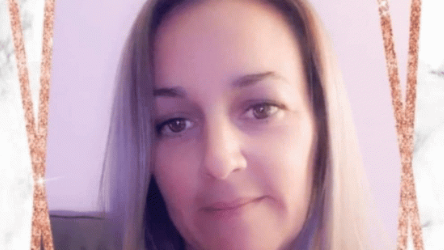
Erin Harbinson from Tandragee in County Armagh died aged 44
In October 2023, the Southern Trust announced a precautionary review of the cervical screening results of 17,425 women screened between 2008 - 2021.
The move was in response to an independent Royal College of Pathologists (RCPATH) report which found "persistent underperformance" in the work of some laboratory screeners.
BBC News NI can also reveal that out of the four screeners under review one screener has been suspended, while conditions of practice have been placed on a second following hearings by the regulatory body, the Health and Care Professions Council.
In an interview with BBC News NI, the Southern Trust said it acknowledged this was a difficult time for all of the families and the anxiety the process had caused.
Medical director Dr Steve Austin said a vast majority of the slides checked were normal, but recognised that some women received a different reading and have had to undergo treatment as a consequence.
"We have learned lessons from everything that has happened. HPV screening is now in operation and the laboratory services have now been centralised in one location and other improvements have been made across the system," Dr Austin said.
There were failings - Southern Trust
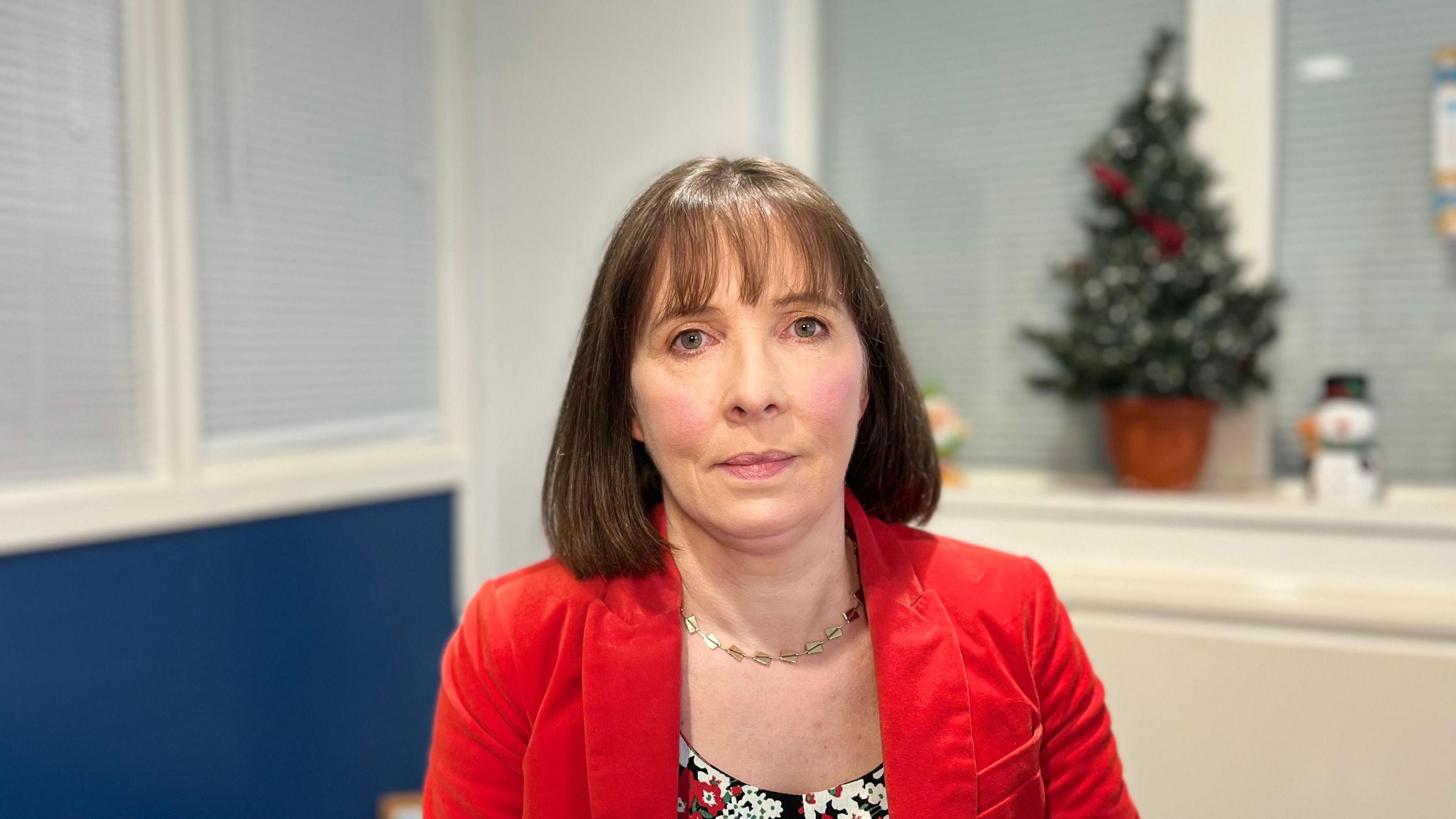
Director of Public Health at the Public Health Agency (PHA) Joanne McClean apologised for all the hurt that people have suffered
In February 2023, BBC News NI broke the Southern Trust cervical scandal when it reported that a woman who was diagnosed with cervical cancer had three previous abnormal smear tests that were missed.
After being contacted by the woman and a whistleblower coming forward with information, BBC News NI also revealed that concerns had been raised about some screeners' performance before 2022 and that a review of their work was to take place.
The Southern Trust admitted there had been "failings" in the cervical testing lab, but said it extended beyond individual staff members and reflected "wider system failings".
Just under 94% of the women identified took part in the review, with the trust locating 513 patients who had moved outside of Northern Ireland.
Director of Public Health at the Public Health Agency (PHA) Joanne McClean said sorry for all the hurt and distress and grief that people have suffered.
Whether or not there should be a public inquiry, she said, was up to the health minister.
'Persistent failure'
The highly critical Royal College of Pathology report found a "persistent failure " to tackle underperformance by some cervical screening staff.
It said policies for dealing with poor performance were below standard and the screening laboratory was not sustainable.
Action taken by management was inadequate over many years, said the college.
For all of the review period 2008 – 2021, Northern Ireland used cytology-based screening which involves making a slide from the smear test sample and looking at it under a microscope.
Cytology screening only detects about three in four abnormalities.
In December 2023, Northern Ireland caught up with the rest of the UK when it introduced primary HPV screening which tests for the presence of a human papillomavirus (HPV) which is responsible for almost all cases of cervical cancer.
This is a more sensitive screening method and is expected to find nine out of 10 abnormalities.
The findings will now undergo an independent expert review, with work on this to commence imminently by Allan Wilson, a senior biomedical scientist at NHS Lanarkshire. He has more than 45 years experience of working on the cervical screening programme in Scotland.
Based on those findings, the health minister will decide whether to launch a public inquiry.
Main symptoms of cervical cancer
Vaginal bleeding that's unusual for you – including during or after sex, between periods or after the menopause - or heavier periods than usual
Changes to vaginal discharge
Pain during sex or in the lower back, lower tummy or between the hip bones (pelvis)
- Published26 September 2024
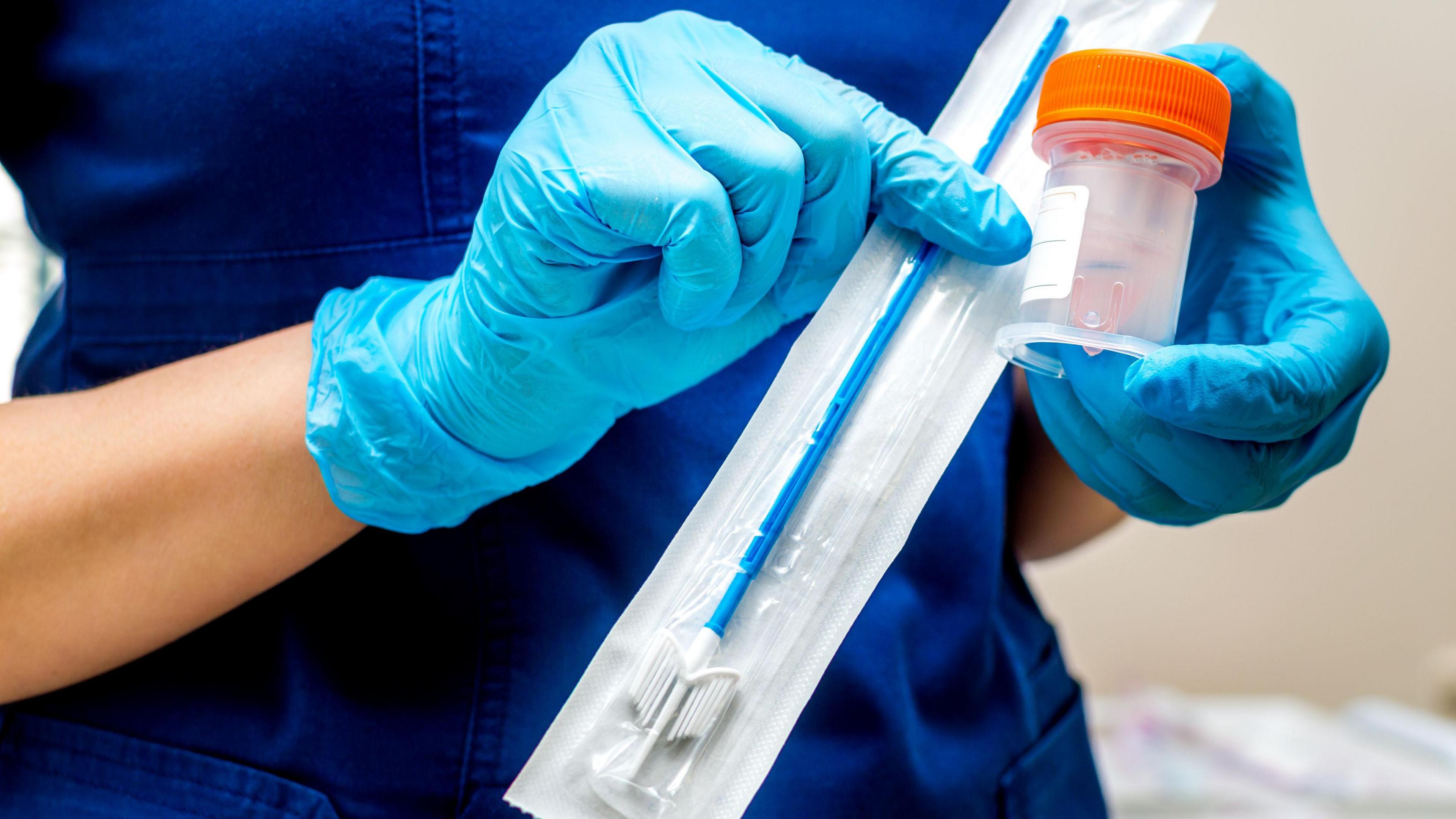
- Published11 July 2024
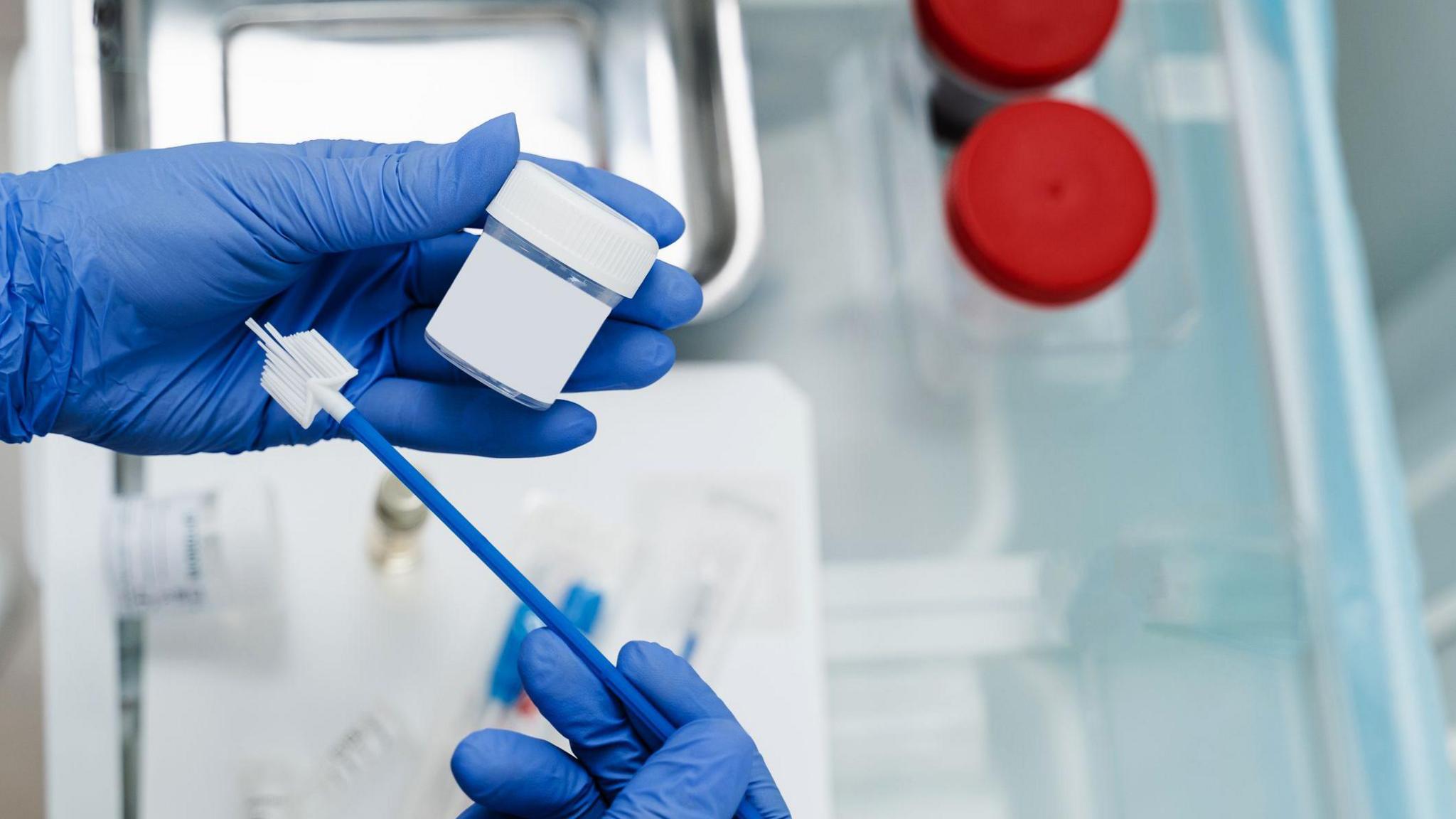
- Published25 April 2024
